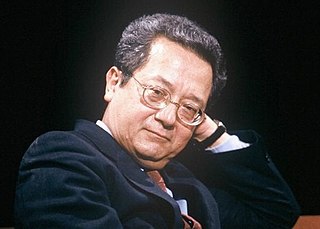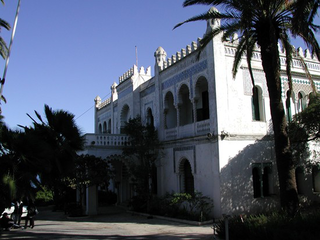In France, war crime apology is a legal concept and a criminal offense based on the promotion and justification of war crimes.
In France, war crime apology is a legal concept and a criminal offense based on the promotion and justification of war crimes.
The glorification of war crimes and crimes against humanity are distinct offenses but both are prohibited by article 24, paragraph 5, of the law of July 29, 1881:
Will be punished with the same penalty [five years' imprisonment and a fine of 45,000 euros] those who ... have advocated the crimes referred to in the first paragraph, war crimes, crimes against humanity, crimes of enslavement or exploitation of a person reduced to slavery or crimes and misdemeanors of collaboration with the enemy, including if these crimes have not given rise to the conviction of their perpetrators [1] [2]
The definition of an "apology" is not specified. It may be the desire to justify a crime, which is not to be confused with praise or provocation (incitement) to commit this crime: "it is enough that such remarks, once projected into the future , encourage people to pass a favorable judgment on crimes of this nature." [3]

Jacques Vergès was a Siamese-born French lawyer and anti-colonial activist. Vergès began as a fighter in the French Resistance during World War II, under Charles de Gaulle's Free French forces. After becoming a lawyer, he became well known for his defense of FLN militants during the Algerian War of Independence. He was later involved in a number of controversial and high-profile legal cases, with a series of defendants charged with terrorism, serial murder, crimes against humanity, and war crimes. This includes Nazi officer Klaus Barbie "the Butcher of Lyon" in 1987, terrorist Carlos the Jackal in 1994, and former Khmer Rouge head of state Khieu Samphan in 2008. He also defended infamous Holocaust denier Roger Garaudy in 1998 as well as members of the Baader-Meinhof gang. As a result of taking on such clients, he garnered criticism from members of the public, including intellectuals Bernard-Henri Lévy and Alain Finkielkraut, political-activist Gerry Gable as well as Nazi hunter Serge Klarsfeld.

The Affiche Rouge is a notorious propaganda poster, distributed by Vichy France and German authorities in the spring of 1944 in occupied Paris, to discredit 23 immigrant French Resistance fighters, members of the Manouchian Group. The term Affiche Rouge also refers more broadly to the circumstances surrounding the poster's creation and distribution, the capture, trial and execution of these members of the Manouchian Group.
Incitement to ethnic or racial hatred is a crime under the laws of several countries.
The Gayssot Act or Gayssot Law, enacted on 13 July 1990, makes it an offence in France to question the existence or size of the category of crimes against humanity as defined in the London Charter of 1945, on the basis of which Nazi leaders were convicted by the International Military Tribunal at Nuremberg in 1945–1946.
The 23 February 2005 French law on colonialism was an act passed by the National Assembly, which imposed on high-school (lycée) teachers a requirement to teach the "positive values" of colonialism to their students. The law, particularly the aforementioned paragraph and Articles 1 and 13, created a public uproar and drew massive opposition from the left, and Article 4, Paragraph 2 was repealed by president Jacques Chirac (UMP) at the beginning of 2006, after accusations of historical revisionism from various teachers and historians, including Pierre Vidal-Naquet, Claude Liauzu, Olivier Le Cour Grandmaison and Benjamin Stora. Its Article 13 was also criticized as it supported former Organisation armée secrète (OAS) militants.

Prostitution in France was legal until April 2016, but several surrounding activities were illegal, like operating a brothel, living off the avails (pimping), and paying for sex with someone under the age of 18.

Elements from the French Armed Forces used deliberate torture during the Algerian War (1954–1962), creating an ongoing public controversy. Pierre Vidal-Naquet, a renowned French historian, estimated that there were "hundreds of thousands of instances of torture" by the French military in Algeria.
Jean Leguay was the second-in-command of the French National Police during the Nazi Occupation of France. He was complicit in the 1942 roundup of Jews in Paris and their deportation from France to Nazi extermination camps, which resulted in the murders of thousands of people, both adults and children.

Between 1941 and 1945, Nazi Germany perpetrated the Holocaust: a large-scale genocidal campaign in which approximately six million European Jews were systematically murdered throughout German-occupied Europe. Since World War II, several countries have criminalised Holocaust denial—the assertion by antisemites that the genocide was a hoax. Currently, 17 European countries, along with Israel and Canada, have laws in place that cover Holocaust denial as a punishable offence. Many countries also have broader laws that criminalise genocide denial, including that of the Holocaust. Among the countries that have banned Holocaust denial, Russia, Austria, Germany, Hungary, Poland, and Romania have also banned Nazi symbols. Any expression of genocide justification is also a criminal offence in several countries, as is any attempt to portray Nazism in a positive light.
Émile Raymond Georges Marius Boudarel was a French academic and militant communist who was accused of torturing French prisoners for the Viet Minh during the First Indochina War.

The Crimes Against Humanity and War Crimes Act is a statute of the Parliament of Canada. The Act implements Canada's obligations under the Rome Statute of the International Criminal Court. In passing the Crimes Against Humanity and War Crimes Act on 24 June 2000 and having royal assent given on 29 June 2000, Canada became the first country in the world to incorporate the obligations of the Rome Statute into its domestic laws. It replaced earlier 1987 legislation targeting Nazi war criminals passed in the immediate wake of the Deschênes Commission.

Count François de Menthon was a French politician and professor of law.
The All-Party Parliamentary Group for the Prevention of Genocide and other Crimes Against Humanity is an informal group of Parliamentarians composed of members from all parties in the House of Commons of Canada and the Senate of Canada with an interest in the prevention of genocide and similar crimes against humanity.
In the French penal code, murder is defined by the intentional killing of another person. Murder is punishable by a maximum of 30 years of criminal imprisonment . Assassination and murder in some special cases in accordance with Article 221-4 ) are punished by a jail term up to life imprisonment. The same punishment is given to murder committed in connection to other criminal offenses according to Article 221-2.
Maurice Laissant Began his career working for the French national railway company before taking a job as a sales representative. He became progressively more widely known as a militant anarchist individualist, free thinker and pacifist. He was a co-founder in 1953 of the newly regrouped Paris based Anarchist Federation.
TheCode pénal is the codification of French criminal law. It took effect March 1, 1994 and replaced the French Penal Code of 1810, which had until then been in effect. This in turn has become known as the "old penal code" in the rare decisions that still need to apply it.
A memory law is a legal provision governing the interpretation of historical events and showcases the legislator's or judicial preference for a certain narrative about the past. In the process, competing interpretations may be downplayed, sidelined, or even prohibited.

The villa Sésini is a torture center established in El Biar during the Algerian war in the city of Algiers.
The principle of legality in French criminal law holds that no one may be convicted of a criminal offense unless a previously published legal text sets out in clear and precise wording out the constituent elements of the offense and the penalty which applies to it. (Latin:Nullum crimen, nulla pœna sine lege, in other words, "no crime, no penalty, without a law").
The principle of legality in criminal law was developed in the eighteenth century by the Italian criminal lawyer Cesare Beccaria and holds that no one can be convicted of a crime without a previously published legal text which clearly describes the crime. This principle is accepted and codified in modern democratic states as a basic requirement of the rule of law. It has been described as "one of the most 'widely held value-judgement[s] in the entire history of human thought ' ".